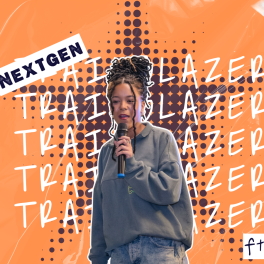
Everyone has anxiety, or suffers from Obsessive Compulsive Disorder, or is depressed about missing their flight.
Right?
WRONG!
Too many people feel like they want to have a mental health illness or at least get a chance to flaunt it.
So let's get real for a hot minute-
Do you really want to feel an intense sense of horror about losing control or experiencing contamination? Yes, I just described OCD. However, your "need to keep your desk clean" is not OCD. It is much less.
What about having digestive problems all the time?
Stomach issues that are not just because you inhaled a significant portion of chicken nuggets while binge-watching The Office for the 10th time?
I just described a symptom of chronic depression.
Your "sad memes" about your recent fashion faux-pas are not depression.
They are a futile attempt of trending using emotional distress.
Have you ever had an anxiety attack or felt disconnected from reality, not because you had too much cannabis? Just because you are sad that your pizza delivery was late, does not mean that you have anxiety.
The sudden need to portray a level of sickness.
The dilution of mental health issues.
The mockery of mental health symptoms.
Bleak, right?
Well, it gets worse.
A recent study showed that many teenagers are convinced that their depression, anorexia, and bipolarity make them "special" or "cool." So, do tell, what is so cool about having diseases that can be life-long or invisible?
It is no understatement that social media pushes us to bring forward our most perfect selves.
Airbrushed selfies with a well-behaved puppy in the background.
Exquisite staycation photos with a steaming cuppa and reading glasses.
Social media authenticity has been shot down with a double-tap on Instagram.
But the other end of the spectrum is worse. Much worse. Romanticizing eating disorders or panic attacks to come across as quirky? Is that what years of Nicholas Sparks and cutesy rom-coms have led us to?
So, where does all this stem from?
Well, man is a social animal, they always say. A social animal who feels unwanted will do anything to fit in. In our case, unfortunately, it's by appropriating mental health disorders to give a vibe of belonging.
Some say that this has led to a dialogue on mental health illness, therefore it’s not bad.
“All publicity is good publicity" and all that jazz. But if that line didn't work for Monica Lewinsky, it would definitely not help contribute to mental health discourse.
As a result, we severely lack genuine voices and support. Unfortunately, all that has happened with this newfound obsession for being anxious/bipolar/OCD is that the accurate picture, i.e., the harsh realities of how people live with these illnesses, has been buried.
Buried under many meaningless hashtags and public declarations to followers to add the "self-help guru" tag in their bio.
To wrap up, if you don't have a mental health condition - do not glorify and become a part of this elite "sad online culture."
It is anything but that.
You do not want to be why someone feels their actual disorder is not "trendy" enough for contemporary times.
More for you
Support Young Creators Like This One!
VoiceBox is a platform built to help young creators thrive. We believe that sharing thoughtful, high-quality content deserves pay even if your audience isn’t 100,000 strong.
But here's the thing: while you enjoy free content, our young contributors from all over the world are fairly compensated for their work. To keep this up, we need your help.
Will you join our community of supporters?
Your donation, no matter the size, makes a real difference. It allows us to:
- Compensate young creators for their work
- Maintain a safe, ad-free environment
- Continue providing high-quality, free content, including research reports and insights into youth issues
- Highlight youth voices and unique perspectives from cultures around the world
Your generosity fuels our mission! By supporting VoiceBox, you are directly supporting young people and showing that you value what they have to say.




